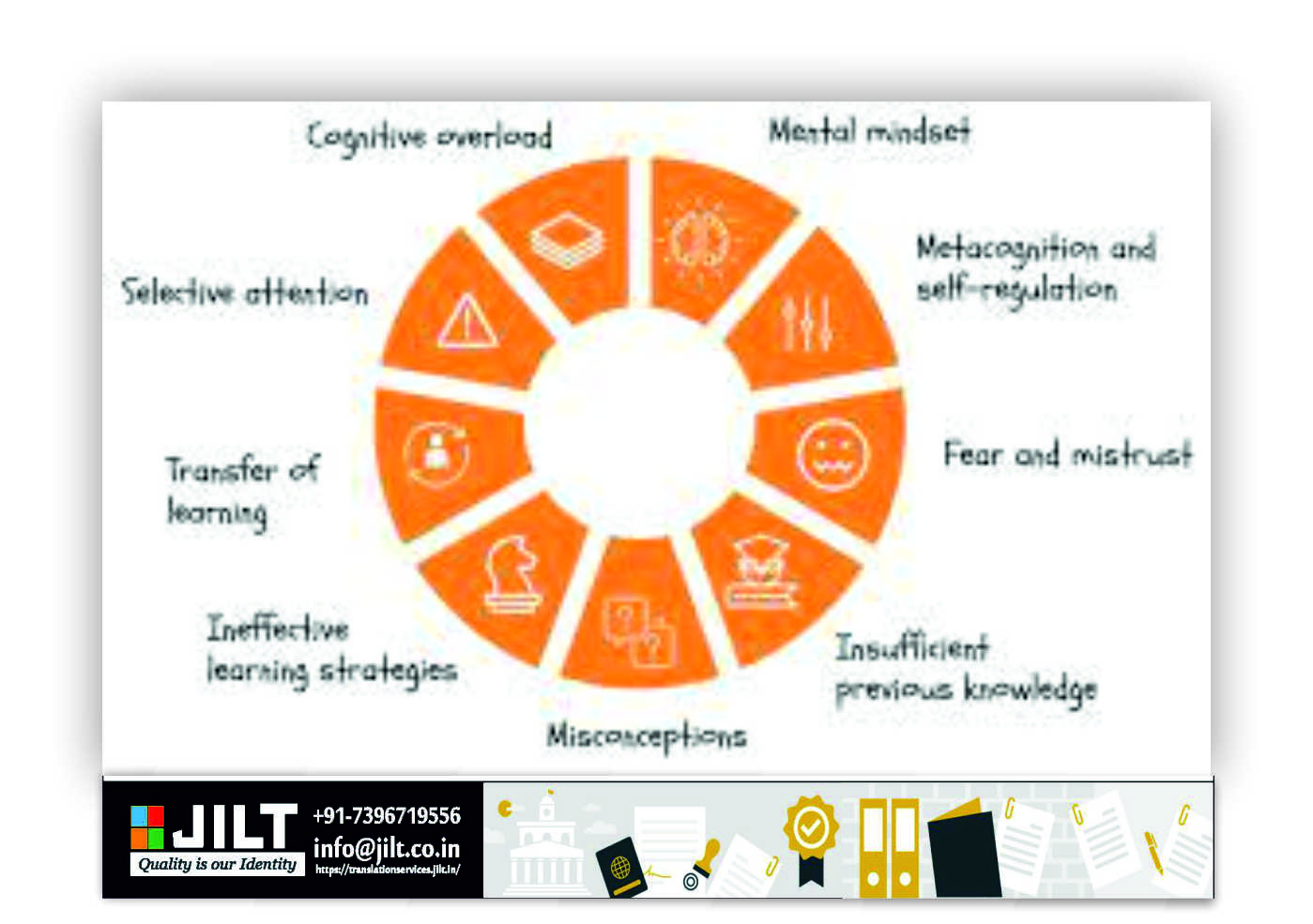
Nine Strategies for Conquering Language Obstacles in the Workplace
by Dr. Abu Mazhar Khalid Siddique - April 25, 2024
Introduction
When it comes to overcoming language obstacles in the workplace, it is necessary to employ skilled tactics in order to guarantee smooth communication and collaboration. Our competence lies in the provision of comprehensive solutions for the purpose of overcoming linguistic hurdles, in particular with regard to the translation of important documents such as bank statements from Chinese to English. Our professional translators guarantee the accurate conversion of financial facts, allowing firms to work seamlessly across linguistic barriers. They do this by paying great attention to correctness and maintaining confidentiality.
If you want to be successful in today's globalized environment, excellent communication is absolutely necessary. In order to translate Chinese bank statements into English, we take a customized strategy that incorporates nine different strategic techniques. These methodologies have been meticulously created to meet the intricacies of financial terminology and cultural situations. Through rigorous attention to detail and prompt delivery, our team of professionals is committed to supporting communication that is both clear and succinct. This enables enterprises to thrive in environments that are multilingual and to achieve their goals with confidence.
1. Get language training to get past language obstacles
This won't solve all the problems that come up in multilingual workplaces, but it can make a big difference.
If your company does a lot of business in France, for example, make sure that your employees take some basic French classes. They might not be able to speak French perfectly, but they will have a better idea of where the French staff is coming from.
2. Discuss how different cultures work
Problems can happen at work because of differences in culture. Little things that you might not even notice can cause big issues between people if they aren't dealt with.
It's a good idea to teach your workers about cultural differences they might face. This could be anything from how people sit in their chairs to how they talk to each other.
When people don't understand cultural differences, they might think someone is being rude on purpose, which can cause problems. Most of the time, that's not the case, and it has to do with cultural confusion.
Stopping these issues before they get worse can help in the long run and make the workplace run more smoothly.
3. Use simple language with coworkers
A lot of the issues that come up because of language barriers can be avoided by using simple words. When your workers write emails and give presentations, they should keep in mind that they may be talking to people whose first language is not English. This could mean telling them to be clear, to the point, and leave out things that aren't needed.
Getting rid of expressions can also help, since they can be hard to understand.
4. Hire a translator or an interpreter
A lot of people may be good at the second language they need to work in, but getting a professional translator can help clear up misunderstandings and mistakes. This is a great idea when you're working on thoughts that are more complicated. Translators can help when words or trying to understand each other don't work.
You should hire a translator to help you with the office's most important papers. This could be about company rules, perks, or new rules you're enforcing. That way, there is no doubt. A lot of the time, companies will use employees who took language classes in school or who speak a second language at home. This is handy, but it often leads to mistakes that a professional translator who knows how to deal with business communications would avoid.
5. Bring in visuals
When it comes to comprehending ideas, the utilization of images can be of great assistance in cases where words fail to convey the intended meaning. In order to assist others in understanding what you are attempting to say, you should make use of infographics, photographs, and diagrams. Therefore, in order to ensure that everything is as clear as possible, you should encourage your employees to do this in presentations and emails.
6. Instruct workers to have a respectful attitude.
In many cases, language limitations can be extremely frustrating. There are situations where they can even result in disagreements between the parties involved. Despite the fact that this is unavoidable in a setting that supports multiple languages, you should urge your staff to be as respectful as they possibly can.
Immediately put an end to any jokes or derogatory remarks that are made about the ability of another person to speak a different language. In addition to the fact that this might lead to the person feeling humiliated for continue to improve their talents, it can also cause relationships in the workplace to become strained. It is important that your surroundings are as encouraging as they can be.
7. Reiterate those words.
Learning is accomplished through repetition. There is a possibility that even individuals who have heard something once in their native language may not always recall what you have said. It is possible that it will be considerably more challenging for anything to “stick” if you are communicating with people who speak a different language.
Even though it may be frustrating to employees when you repeat yourself, there are situations in which it is vital to do so in order to guarantee that everyone is on the same page.
8. Inspire employees to learn about the people of the other culture
Language is an essential component of a culture, and a setting that is multilingual is an excellent place to begin learning about other languages. Employees should be encouraged to learn words and idioms in the other language, as well as to investigate the differences in the cuisine and traditions of the two countries. It is also possible for you to organize conversations regarding a variety of themes, such as the ways in which different cultures deal with particular situations or festivals.
Not only may this provide your employees with the opportunity to advance in their careers, but it can also enhance their personal development. One of the best ways to broaden one's understanding of the world is to cultivate relationships with people who come from different nations and cultures. This might even be something that your employees enjoy doing.
9. Be conscious of the gestures you make.
The gestures that people who speak English in the United States consider to be impolite may be very different from the gestures that people who speak English in other countries consider to be inappropriate. As an illustration, gestures that are considered to be fairly commonplace in the United States may be considered extremely impolite in Japan, and vice versa.
It is important to pay attention to the gestures that are being made before entering the job. Your employees should also be educated on this topic. When we make motions with our hands, many of us don't give it much thought, yet this can result in major wounded feelings and hostility between the parties involved.
By educating everyone on what is and is not proper, it is probable that there will be more laughing than assumptions that the other person was attempting to be impolite.
Conclusion
To sum up, getting past language barriers at work isn't just about translating; it's also about making cross-cultural relationships more understanding and productive. By using our nine strategic methods, businesses can get past language barriers and create an environment where people from all backgrounds can grow. From careful translation to understanding other cultures, our method stresses how important good communication is for reaching corporate goals.
We know how significant language is in today's world market because we offer language solutions. By using these strategies, businesses can use the power of different languages to spark new ideas, make teamwork better, and ultimately achieve long-term success in a world where everything is linked. We are ready to help companies confidently and effectively handle the challenges of multilingual communication thanks to our knowledge and commitment to excellence.
Our organization employs native-speaking translators who can provide certified translation services in any language. We provide translation services in English (Urdu), Arabic (Spanish), German (French), Persian (Iranian), French (Italian), Japanese (Korean), Russian, and any other Indian or local language. Expert proofreaders at our company will inspect the translation. We also provide a courier service to deliver completed documents to our clients.
- Also Read :- Police Clearance Certificate Translation Services
- Also Read :- Datasheets Translation Services
- Also Read :- INNOVATIONS IN AUDIO-VISUAL TRANSLATION
- Also Read :- NATIONAL TRADE CERTIFICATE: EMPOWERING SKILLED WORKFORCE AND FUELING ECONOMIC GROWTH
- Also Read :- A COMPREHENSIVE STUDY FOR TRANSLATION INDUSTRY STATISTICS
- Also Read :- THE IMPORTANCE OF SOCIAL MEDIA TRANSLATION AND ITS APPLICATIONS
- Also Read :- THE VITAL ROLE OF BIRTH CERTIFICATES: TRANSLATION FROM TAMIL TO GERMAN
- Also Read :- Employment reference translations (JILT - Certified Translation Services)
- Also Read :- Death certificate translation
- Also Read :- ECOMMERCE LOCALIZATION: IMPORTANCE OF ASSOCIATING YOUR CMS WITH A TMS
Search
Categories
Archives by Month
Popular Blog
QUICK TRANSLATION QUOTE
Need help with a translation?
Get in touch with us
Whether you have a specific project you want to discuss, need a translation quote or simply want to discuss your requirements, do not hesitate to get in touch with us.











Social Networks